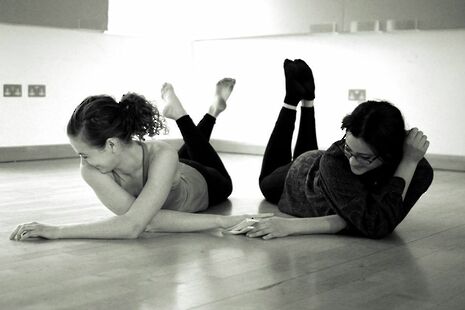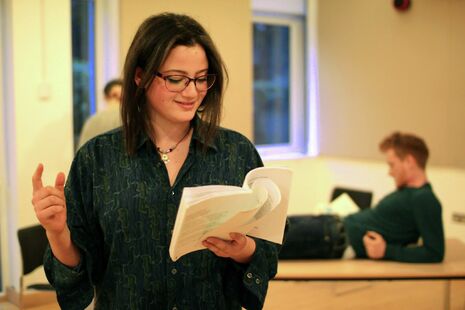Preview: Attempts on Her Life
The team behind this experimental play discuss the challenges in bringing it together

Director Tania Nicole Clarke says:
Deciding you want to take a stab at ‘directing’ one of Crimp’s plays is like saying you want to want to lead a group of hikers on a precarious, meandering ramble to a destination you are not quite sure of until you’ve all begun the journey. Not until you’re all in it together on the same footing, discovering the terrain for yourselves can you make those all-important decisions to find your own way.

Enough of the metaphoric garble. But in all seriousness, my intention with Attempts on Her Life was always to allow a collaborative creative process with a company of actors, who shared my interest in creating experimental modes of theatre; which Crimp’s script certainly lends itself to. There are no principle characters, so any dreams of participating as the lead Stanislavskian actor are thrown out the window, along with any kind of linear narrative. This for me is the beauty of getting involved; bouncing ideas off a talented ensemble of ten tantalising actors and acting not for any means of self-promotion but rather of collective discovery. Our rehearsal process has been a huge learning curve for me; with experience firstly as a performer myself I’ve found the semi-devised process ambitious and challenging.
Crimp’s script has allowed both company and crew to experiment theatrical from, toying with music, movement and performance conventions; the show features translations of English into other languages and written words into movement language. What we have created is a kind of performance art; it stands alone and certainly doesn’t try to please anyone. Just as Crimp’s text is doing its own thing, so are we.
Actor Rhianna Frost says:
Crimp's script presents as many challenges as rewards, and very early on in the process we were forced to decide that the standard aim of pleasing the audience would be impossible to apply to this play. The script does not call for your sympathy, empathy, judgement, laughter, tears or titillation – although at the same time it reaps all of these things.
Since the script is without plot and there are no characters (at least not in the conventional sense) and not even specified line allocation, all of us have had to feel our way through the script like in the story about the blind men discovering an elephant. I may be grasping for its tail, while my fellow actors and the production team have a feel for the head, legs, tusks and body – but it is only in compiling our ideas that we have been able to begin to visualise the whole.
For this reason, the process of putting the script on its feet has been entirely collaborative. Tania Clarke and the brilliant directorial team have allowed the entire cast to experience the freedom which the script allows, whilst also making productive decisions to pin down the focus, tone, energy and differing intensities of each scenario. We hope that each audience member will leave the theatre with their own personal understanding of the play, as the script itself does not allow for one coherent interpretation. For this reason every actor has had to lay aside our natural desires for the limelight, personal glory and leading roles in order to feed all of our energy into the ensemble and to rely wholeheartedly on Crimp's words, not ourselves, to do the talking.
 Interviews / You don’t need to peak at Cambridge, says Robin Harding31 December 2025
Interviews / You don’t need to peak at Cambridge, says Robin Harding31 December 2025 News / Unions protest handling of redundancies at Epidemiology Unit30 December 2025
News / Unions protest handling of redundancies at Epidemiology Unit30 December 2025 Features / ‘Treated like we’re incompetent’: ents officers on college micromanagement30 December 2025
Features / ‘Treated like we’re incompetent’: ents officers on college micromanagement30 December 2025 Comment / What happened to men at Cambridge?31 December 2025
Comment / What happened to men at Cambridge?31 December 2025 Theatre / We should be filming ADC productions31 December 2025
Theatre / We should be filming ADC productions31 December 2025







